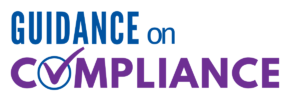Many, if not most, healthcare provider compliance programs identify overpayment from Federal Payers – particularly Medicare and Medicaid – as a key risk. Whistleblowers frequently initiate government scrutiny related to Federal payors. As a result, many compliance programs focus on the Federal piece of their payor mix.
Providers that do not enroll with Federal payors or for whom Federal payors are a small portion of their payer mix may have chosen to commit fewer resources to compliance. It is time to rethink that position.
The launch of a new whistleblower program targeting fraud schemes in the private sector should prompt Compliance Officers to review annual audit plans – especially audit design. Many compliance programs would do well to expand audit focus from review of Medicare/Medicaid and other Federal Payers to also include private payers.
The Department of Justice (DOJ) has created a pathway for whistleblowers who help uncover crime in Corporations. In healthcare, this pathway creates incentives for whistleblowers related to uncovering health care fraud schemes targeting private health insurers. Fraud targeting Federal payors has long been subject to qui tam recovery under the False Claims Act. A similar pathway did not exist for schemes targeting private (Commercial) payers until now.
The DOJ released a new Whistleblower Awards Pilot Program on August 1, 2024 which is a three-year initiative developed to fill the gaps in the existing program. This new program supports whistleblowers in the private insurance sector, however the program only awards reporting and not litigation. With this addition, there is a significant increase in the number of fraudulent claims that can be reported.
This initiative is a temporary amendment to the Corporate Enforcement and Voluntary Self Disclosure Policy which was created to encourage organizations to self-report. Organizations that self-report have the possibility of receiving smaller penalties and fines. The temporary amendment provides a specific timeframe of reporting that was not previously specified. Organizations and individuals can now receive these benefits if the reporting occurs within 120 days.
By creating this incentive, the DOJ is hoping that corporations will be motivated and take the initiative to improve their compliance program to identify criminal conduct which includes having an internal reporting system.
The program was designed so that any whistleblower that provides original information that leads to successful forfeiture may be eligible for an award of the percentage of the forfeited assets. The DOJ defines original information as “Information that is derived from the individual’s independent knowledge or independent analysis,” “Information that is non-public and previously not known to the Department,” and “Information that materially adds to the information the Department already possesses.”
There are conditions to be met in order to be eligible for the reward and a list of specific reasons that a whistleblower may not be eligible for an award. All of the eligibility criteria can be found in the Department of Justice Corporate Whistleblower Awards Pilot Program document along with other additional guidance and procedures.
With the release of this new Whistleblower Awards Pilot Program, it is important for companies to review their compliance program and ensure that they have a process in place for conducting audits and tracking audits, completing and tracking investigations, self-reporting, and a policy for non-retaliation.
Organization’s compliance programs should include the completion of an annual risk assessment to determine the areas of risk and what to audit. The results of a risk assessment will help your organization develop a work plan and schedule the audits based the level of risk. The audits will then help your organization determine if an investigation should be conducted and if there are any incidents that should be reported.
LW Consulting, Inc. (LWCI) can help your organization with any of these needs to make sure your compliance program is flowing as it should and has no gaps. Our consultants can review your policies and processes to determine if anything needs updated or changed. Additionally, our experts can provide an extra set of eyes in completing a risk assessment, helping you develop your work plan and make sure you are completing the necessary audits for your compliance program.
For more information on risk assessments and reviewing your compliance program, read our blog “Compliance Programs – How to Identify Gaps and Know Your Organization’s Risks.”
To discuss how our experts can help your organization, contact Harriett Wall at HWall@lw-consult.com or call (207) 613-2992.


